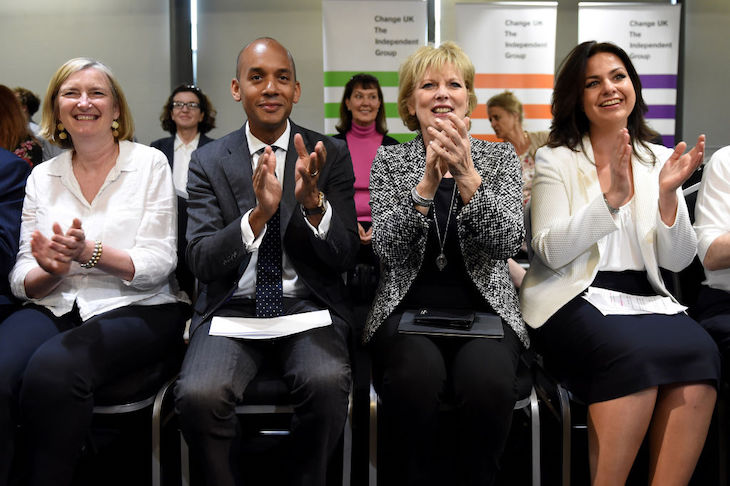Change UK has been holding post-mortem meetings about its failure to win any seats in last week’s European elections, I understand. Members of the newly-formed party met up this week to discuss what to do next after it only secured 3 per cent of the vote overall.
Critics have suggested that it’s already all over for Change UK, and even its optimistic members accept that the party is going through a very difficult phase. There is talk in some quarters of a merger with the Liberal Democrats- and it was notable that both Mike Gapes and Anna Soubry praised Jo Swinson, who is standing to lead that party. Even those most tribally-opposed to the Lib Dems are now talking about the value of joint working between the two parties, though it isn’t clear whether the Lib Dems will be as welcoming.
The party will be holding more meetings next week to work out what to do, but already a key lesson for its members is that voters need to know more about what it stands for. It attracted a tremendous amount of goodwill in the weeks after its MPs left their respective parties and announced they were coming together, but never managed to move from saying that politics needed to change into explaining what kind of change the group offered. It also attracted widespread ridicule for the number of permutations of its logo design.
There had also been an expectation that more MPs would join, particularly from the Labour party. Some had appeared to be waiting to see how the first breakaway went, but have since been enticed back by promises from Labour’s deputy leader Tom Watson that the battle is not lost and the party is going to change.
Personality clashes within the group broke into the open last week, with Anna Soubry openly criticising interim Heidi Allen for talking about tactical voting. There is also a lack of experience of running campaigns and leading groups of people which has been intensified by the fact that there are just fewer MPs in the party than many of them had been expecting.
Members feel that the comparisons with the slick and election-winning Brexit party are unfair: this movement led by Nigel Farage is not, they insist, as young as their group. They point to Farage’s involvement in national election campaigns over the past few decades in one guise or another, arguing that by contrast Change UK really has only existed for a few months.
But the problem is that a narrative has now taken hold about Change UK being a flop, and that is hard to break. If the party stands any chance of moving on from this difficult period, it will need to emerge from these post mortems not just with a sense of what it stands for, but a united desire among its MPs to stick together, too, which may become increasingly difficult.







Comments